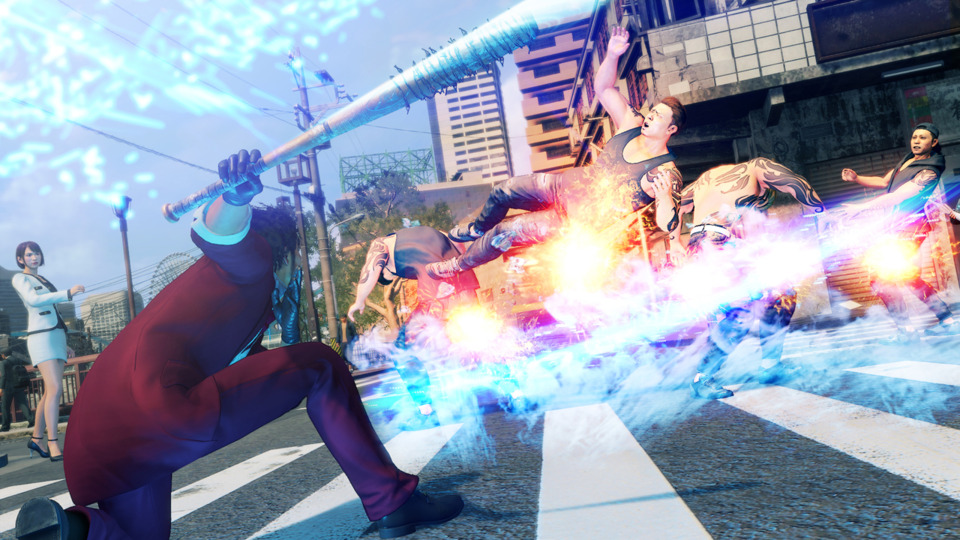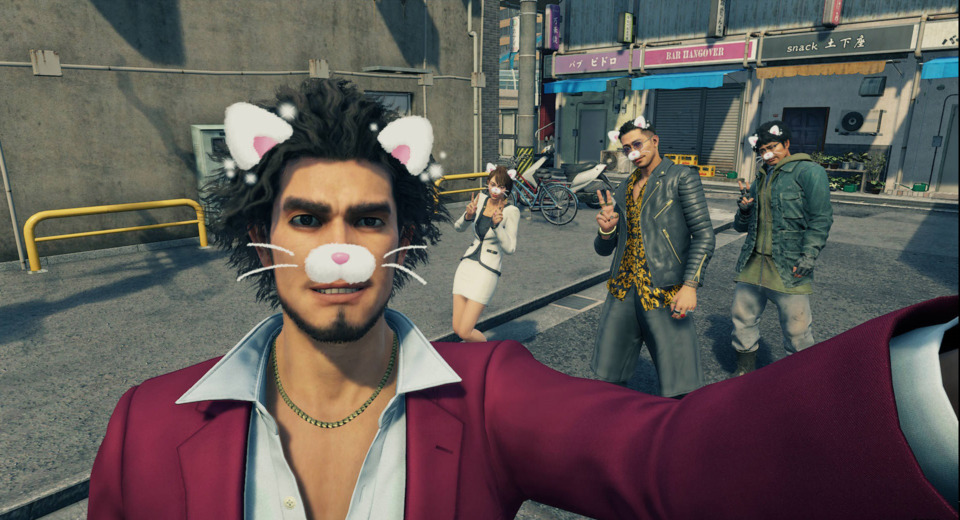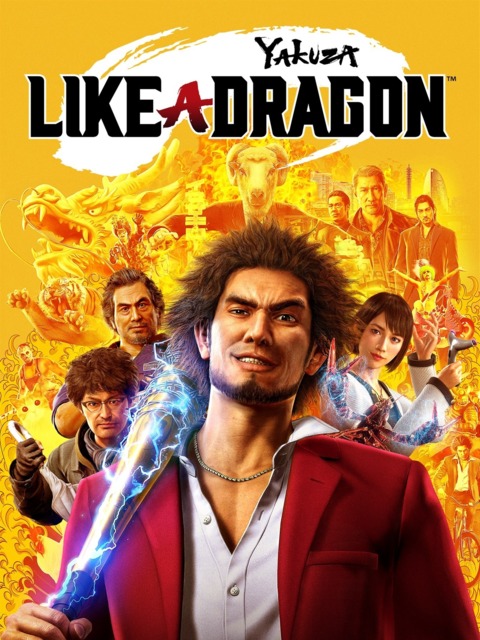Yakuza 7: Like a Dragon: Passing the Torch While Rising to New Heights

The Yakuza series has been unstoppable lately. Originally failing to find much beyond cult appreciation in the West, being misunderstood as “Grand Theft Auto in Japan,” the series finally had its moment in the sun with Yakuza 0. Released in the States in 2017, this prequel brought in droves of new fans with its reset of the plot, stylish 1980’s setting, and quirky charm. Publisher SEGA was quick to follow up with more remakes, ports, and sequels, creating an embarrassment of riches over the last several years for fans of their offbeat crime drama series. However, following the news that Yakuza 6 would end the story of Kazuma Kiryu, the series main protagonist since it’s beginnings, the future was wide open, and perhaps uncertain, for the franchise. Further developments that the series would be turn-based, forsaking the action-brawler battles the series was known for, became cause for concerned speculation among its fanbase. Yakuza 7 represents the future of the series, and it carries itself forward with bold, unwavering confidence. It is a very special game, filled with heart, joy, empathy, and soul that very few games come close to matching the sheer pleasure it is to experience it’s world and characters. Yakuza 7 not only picks up the torch of what came before, it rises to the top as one of the greatest entries in the series, blazing a trail forward for what is to come.
Yakuza newcomer Ichiban Kasuga, a happy-go-lucky yakuza grunt who has a chaotic lust for life, takes up the reins as the main protagonist. We are introduced to him in the final days of the last millennium, with New Years’ 2000 quickly approaching. It only takes moments for Ichiban to make his personality known. Far from Kiryu’s stoic edge, Ichiban is a wild, goofy lead who sees himself as the hero of his own RPG (even name dropping the Dragon Quest franchise at multiple points in the story.) Following a murder connected to his mob family, Ichiban is more than happy to take the fall, spending almost two decades in jail. The loyalty and love he shows to his family make him easy to care for. He is a fascinating character, both in his origin as a child brought up by the workers in a red-light district, but also as a character who’s genuine exuberance and passion enhances every aspect of the journey. The main plot has a lot of sympathy and love for those most unfortunate in society, with sex workers, the homeless, and mistreated refugees and immigrants being written with care and consideration. The theme that it isn’t too late to make a difference emerges early in the story, and I appreciate that the story often has our leads stand up against a society that would simply ignore those who struggle for the sake of a “more proper” reputation. Kiryu was one of my favorite gaming protagonists of all time, but I found Ichiban’s positivity and loyalty to his friends to make him perhaps even more lovable. Kiryu was a man often fighting to end gang wars, to protect his friends and family and to hopefully find peace. Ichiban is fighting more to be a hero to the people, trying to fight evil and corruption where he finds it, risking life and limb over and over to save his closest friends. While both characters have plenty in common, it is in the ways they are different that makes the game’s plot so much fun. Kiryu could often be silent, an indomitable force who doesn’t need to bluster at his enemies. Ichiban in one amazing scene struts right up to one of the main antagonists and offers him a handshake, showing confidence, charisma, and a devil-may care attitude that makes it impossible not to root for him.

As mentioned earlier, Yakuza 7 opts for a turn-based battle system, rather than the real time beat ‘em up style combat the series is known for. Personally, I think this system is a massive success. There really isn’t another battle system exactly like Yakuza 7’s, which has reactive elements to real time situations, mixed with turn based battle controls. For example, on Ichiban’s turn, you may simply attack an enemy. However, if this attack knocks an enemy over, you can quickly choose the “Attack” command for a party member, and if they reach the target before the enemy has a chance to stand up, they will do extra damage. This can also work with props and other enemies in the environment. Your characters might kick a trash can at the enemy to stagger them before they deliver an attack, or another enemy could cut off an allies attack, interrupting their move and ending their turn early. These real time effects help make the fights feel dynamic, while the core rules are supported with a wonderful Final Fantasy-esque Job system. Your party members can change jobs easily by visiting a career center, and these jobs will outfit them with new attacks, stats, and abilities. I had one party member set to the “Idol” job class, which is a support job focused on healing and buffing the other party members. However, later on I switched this character into a more attack oriented “Dominatrix” class, who absolutely brought pain to our opponents. There are plenty of job classes to experiment with, and they all have abilities your character can learn permanently, meaning that it is beneficial to try out some, even just to grind up a few levels and unlock new powers. There are a few issues with the combat system, however. First of all, the game is generally easy, until some massive difficulty spikes in the late game. It definitely feels like the game expects you to grind at a certain point, and this really halts the momentum in these more intense final chapters. Furthermore, the job class is gendered, meaning different jobs are available between the male and female party members. This is largely an issue because there are noticeably fewer jobs for the women in the group. Yakuza has always largely been male centric, and it was exciting to finally see some female characters join the fray. But I felt like I was running out of new things to try, as I quickly saw most of their job classes before the end of the game, while the men still had a few to choose from. In sequels, it would be preferable to either do away with the gendered jobs entirely, or make it a little more even so that certain party members can keep evolving in new ways for the duration of the adventure.
The Yakuza games have come to be known for their side content, almost more than the more serious and gripping main plot. Yakuza 7 does not disappoint in this regard. Sub-stories return, which are comedic and short side quests that find Ichiban in ridiculous situations. From battling escaped zoo animals, helping a mad scientist invent a massive roomba, helping a homeless man express his feelings to a soup kitchen chef, and saving a crawfish from an early demise, there are so many wild quests to go on. They are almost always genuinely funny, with absurd situations and excellent writing. Sub-stories are a staple of the series, but this is the first time I found myself motivated to finish every single one of them. I can honestly say it's worth it. I cannot remember any sub-story that wasn’t at least enjoyable, and many are fantastic. Beyond these side quests, you are also offered an array of mini games, Persona inspired party bonding subplots, and large side games to complete, in the form of a Mario Kart clone and a business management simulator. Every one of these side ventures are fun and worth pursuing. Many come with their own narratives and characters, and the systems you interact with are typically polished and fun. Sure, the Dragon Kart minigame is not going to replace Mario Kart, but despite some loose controls, it is just one of a dozen fun things to do in between the larger story beats. I cannot recommend diving into any side activity you find around the city enough.
Yakuza 7represents most everything I love about video games. It is absurd and unafraid to lean into its own ridiculousness, but there is a heart at the center of this game that carries forward a moving and thoughtful main plotline. I adored the main cast, and the mysteries they uncovered were always intriguing. More than that, however, I appreciate the optimistic narrative about the family you choose, about fighting for a better world for those who are oppressed by those in power. In 2021, it was easy to feel cynical, to feel the weight of the past few years always present. For me, Yakuza 7 was a game full of hope, one that made me feel a sense of joy in community and friends. It is one of the greatest games of the last few years, and I cannot recommend it enough. It is uncertain what lies in store for Ichiban or the Yakuza series at large, but I cannot wait to see what is next.
